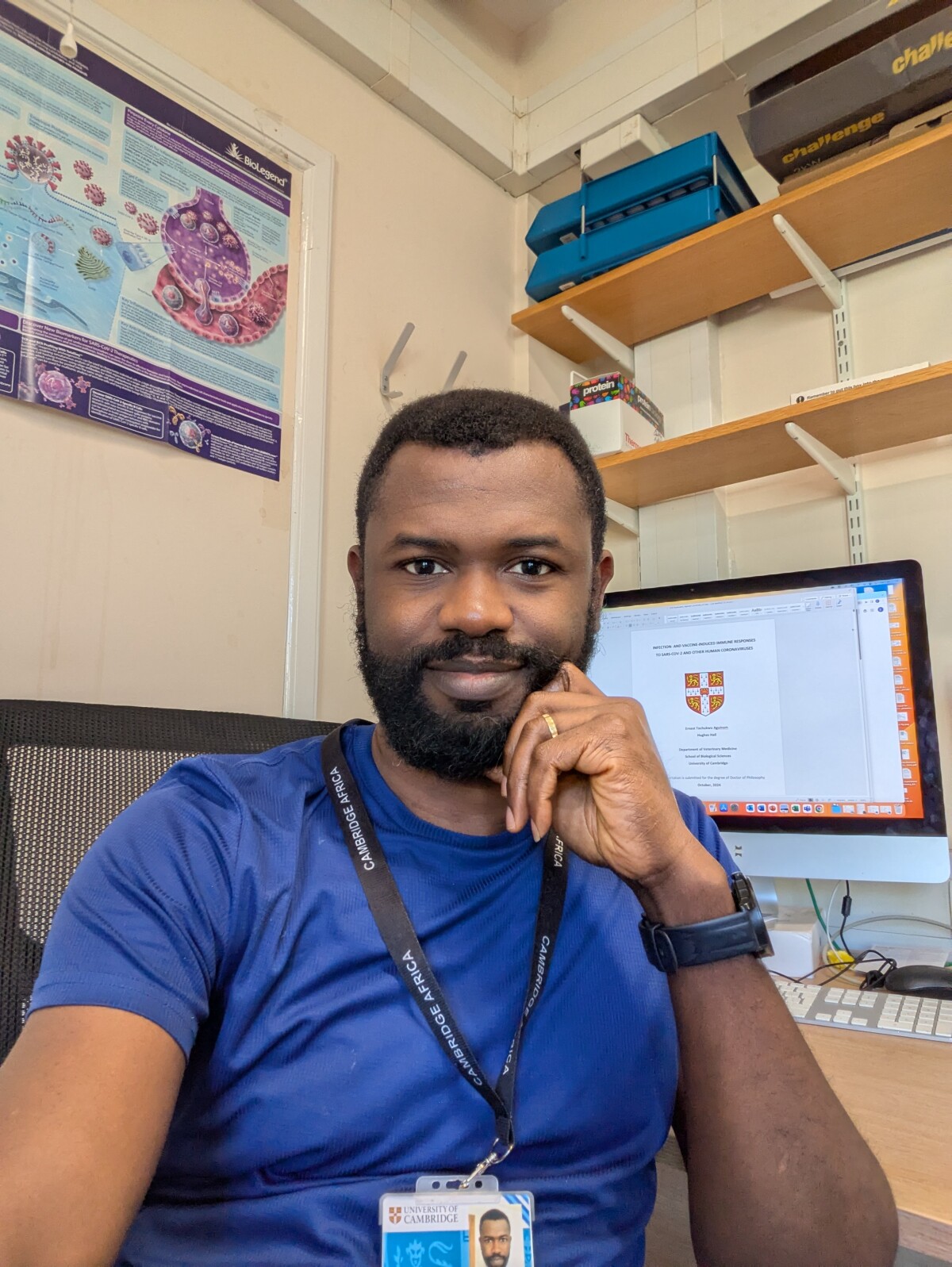My Cambridge Experience

The Journey to Cambridge
My journey to Cambridge began with two friends, Nnadozie and Chima, from my undergraduate days at the University of Maiduguri. Both were based in the USA at the time, pursuing postgraduate degrees. They knew of my desire to undertake postgraduate research and believed I was a strong candidate for competitive scholarships. Their encouragement meant everything. Looking back, I am immensely grateful to them. Without their support, I might never have made the leap to Cambridge. Over six years later, I now hold both an MPhil and a PhD, and more importantly, I carry with me the rich experience of being immersed in the Cambridge environment, of meeting and learning from the simple and the great; sometimes finding both descriptions apply in the same person.
The Challenges
My research project on vaccine immunogenicity and responses in both immunocompromised and healthy individuals was engaging and meaningful. But, as with many PhD journeys, there were tough periods—times of feeling overwhelmed, unmotivated, or disappointed. I found that regular meetings with my supervisors helped me navigate failed experiments and academic roadblocks. Also, taking breaks to rest and “sharpen the saw,” as they say, was vital. Keeping my eyes on the goal to make an important and significant contribution to knowledge, helped me push through those challenges. The birth of my twin daughters in the third year of my PhD was a tremendous blessing! Their arrival gave me renewed motivation and purpose to finish strong – though I’m not suggesting you need twins to succeed (smiles). Balancing the roles of a dedicated final-year PhD student and a present father was no easy task, but with my wife’s support, I managed just fine.
What Cambridge Taught Me
Beyond the scientific knowledge and skills I gained ranging from molecular biology and immunology to infectious diseases and vaccinology, Cambridge helped me discover something deeper: I find genuine fulfilment in the pursuit of scientific discovery. That clarity is a priceless takeaway. Studying at Cambridge also taught me that with discipline and dedication, I can accomplish great things.
Fondest Memories
While Cambridge is often associated with excellence and prestige, some of my fondest memories came from the “little” non-academic moments. I cherish the laughter and banter shared with friends in my local neighbourhood, a memorable weekend trip to Italy with lab colleagues and our families, sports outings with college mates, and the many informal gatherings organized by the Cambridge Trust, Cambridge-Africa Scholarship board, the Cambridge University Nigerian Students’ Association (CUNS), and the African Society of Cambridge University (ASCU). These moments offered a beautiful counterbalance to academic pressures. They allowed me to connect deeply with others, to be enriched by their stories. Sometimes, “our more meaningful achievements might be the soft ones – getting to know each other in ways we never thought, sharing and solving burdens” (quote by Nnadozie Onyekuru).
What’s Next?
I’m about to begin a postdoctoral research fellowship at the Wyss Institute for Biologically Inspired Engineering at Harvard University. There, I’ll be studying vaccine efficacy using organ-on-a-chip models and working on projects related to Lyme disease and environmental enteric dysfunction. I’m thrilled by the opportunity to apply the skills and insights gained during my Cambridge years, combined with my training as a veterinarian. In the meantime, I’m preparing several manuscripts from my PhD research and other collaborative efforts.
Final Words
My time at Cambridge would not have been possible without the generous support of the Cambridge Trust through the Cambridge-Africa Scholarship, and I remain deeply grateful. To current and prospective Cambridge students especially those from Africa, you belong here. Explore and embrace the Cambridge experience. We are only truly limited by our minds, so dare to dream and stay open to learning new things. When challenges arise – and they likely will – reach out to friends or the appropriate university support systems.
Wishing you all the very best. May every good thing you desire and work toward find its way to you.
By Dr Ernest Aguinam

